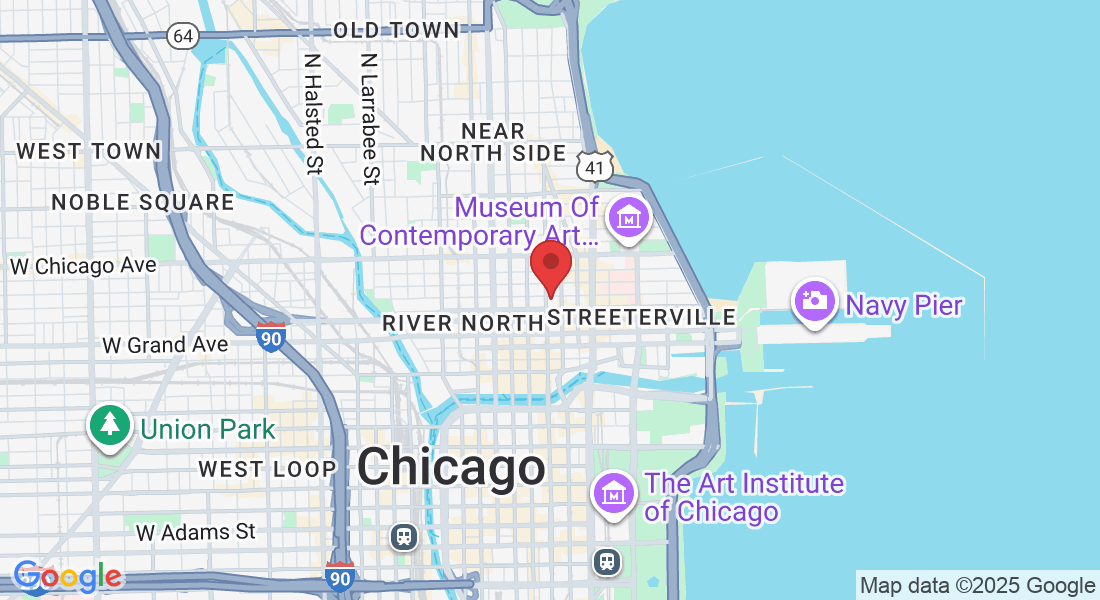
Get Burial Insurance With A Two-Year Look-Back For Cancer
Nobody wants to consider dying, much less make preparations for it. But the truth is, we will all pass away at some point, and those who are left behind will have to deal with the fallout.
If you have cancer or have just undergone cancer treatment, getting burial insurance may be difficult.
When evaluating an application for coverage, the majority of life insurance firms use a two-year lookback period.
It implies that it will be difficult for you to get funeral insurance if you have received a cancer diagnosis within the last two years.
The good news is that a few businesses provide funeral insurance without a two-year lookback window. However, this policy typically costs more than conventional burial or other types of life insurance.
Let’s say you want to receive funeral insurance while paying lower premiums. If so, we advise considering alternative products like whole life insurance without a medical exam required or term life insurance.
Burial Insurance with cancer: What is it?
A sort of life insurance that only pays out if you pass away from cancer within a certain amount of time after acquiring the policy is burial insurance with a two-year lookback.
Although some policies will go back farther, the insurer typically goes back at least two years from the date you purchase the insurance to determine whether it will pay out on your death.
The least expensive option is burial insurance with a two-year lookback for cancer. It’s also one of the most well-liked because it offers comfort in the event that you or a loved one gets sick.
The lookback period describes how long an insurer will provide benefits in the event of a cancer-related death.
For instance, if your policy has a two-year lookback period, your family will receive the full payment amount if you pass away from cancer within those two years.
After those two years, though, your coverage will expire and your family won’t get any more money.
If you pass away from cancer at any point during the plan term, your family will always be eligible to make a claim for benefits because some policies offer a lifetime lookback period.
These policies, however, are typically more expensive than those with shorter waiting times for coverage. We also have plans for people over 85.
What is Cancer and its Symptoms?
Any condition known as cancer is characterized by uncontrolled cell division and metastasis to other body organs. It has more than 100 different varieties and can affect practically any portion of your body.
Malignant cancer is different from benign (non-cancerous) cancer (cancerous). There are several malignancies, but breast, lung, and prostate cancer are the most prevalent.
When cancer spreads to the breast or armpit, a lump may occasionally be felt, but other symptoms include:
tiredness, weakness, and weight loss;
a change in bowel habits;
unexplained bleeding or discharge;
sores that do not heal;
a lump or swelling anywhere on the body;
A common question when someone is diagnosed with cancer is, “What happens to my burial insurance if I die?”
The response is nuanced and is reliant on the kind of policy you hold. Most of the time, a person with a cancer diagnosis is nonetheless eligible for burial insurance coverage. There are a few exceptions, though.
If you pass away within two years of the policy’s issuance, a burial policy will pay out at the time of your death. The policy won’t pay out if you live past that point unless it has been renewed and paid for again (usually on an annual basis).
Therefore, your burial insurance may not be paid out upon your death if you have been diagnosed with cancer and have not yet renewed it.
Best insurance policy option for cancer
Cancer-free for more than two years.
You can select “No” as your response to the cancer-related questions on the application as you have been cancer-free for at least two years. You can purchase life insurance for the cheapest price with this strategy.
Your coverage will begin the following day with a reduced death benefit.
A regular life insurance policy requires a thorough medical examination, whereas the urgent issue-level death benefit plan simply requires a few questions to assess coverage, making it less complicated than a traditional life insurance policy.
This policy has a level premium that stays the same after it is selected and begins with first-day coverage. The cost of your insurance will never go down, and if you pass away, your beneficiary will receive a full reimbursement.
The affordable death benefit plan offers the same fundamental protection as a guaranteed burial insurance policy at a competitive price.
If your treatment has been effective for more than two years, you satisfy all conditions for this plan.
Have cancer or receiving treatment for it
Finding an insurance provider willing to underwrite your life insurance can be challenging if you have certain cancers, such as non-basal or squamous cell carcinoma.
You might also be qualified for a certain kind of policy if you’re receiving treatments or have a medical condition.
Because of your existing medical condition, insurance providers won’t offer coverage. There are solutions available to you if you require life insurance yet have a pre-existing medical condition.
Guaranteed issue or acceptance insurance, which does not call for a medical exam, is an intriguing choice. Regardless of your health, you are covered by this sort of policy.
Without inquiring about your health, the insurance provider will approve your application, which could result in a little higher premium for the policy.
It is simple to obtain this coverage if you are over 50 or 80 years old, a citizen of the United States, and capable of entering into a binding agreement with us.
Treatment in the past two years
If you were given a cancer diagnosis within the last two years and are still receiving treatment, you might be eligible for a first-day benefit plan.
With this strategy, you would be protected right away, and your death benefit would gradually begin to kick in.
What if you’re diagnosed with a severe illness like cancer? Does that mean that you can’t get burial insurance?
As part of their basic funeral insurance contracts, many insurers offer “cancer riders.”
Within two years after the policy’s effective date or at any time thereafter during the duration of your coverage, you are eligible to collect benefits for claims relating to the diagnosis and treatment of cancer with the help of these riders.
This sort of policy is distinct from those provided by other insurers in that it only provides protection against cancer and not against other diseases.
This is due to the fact that it is specifically created to guard against the financial difficulty brought on by the high expense of cancer treatment.
Do I need a medical test to qualify for Burial insurance with A Two-Year Look-Back For Cancer?
No. A Two-Year Look-Back For Cancer’s funeral insurance is available without a medical exam.
When requesting funeral insurance, there are simply a few straightforward health-related concerns that must be addressed.
No medical records or blood or urine samples will be required from you throughout the application process. Typically, the insurance company will offer you a formal clearance in just a few minutes!
Burial Insurance Underwriting With Cancer
Burial insurance is a terrific choice if you’re seeking for a solution to assist your loved ones in paying for your funeral expenditures. Additionally, submit an application for coverage with underwriting to receive the best premium cost available.
You might obtain funeral insurance if you provided some health-related information. The greatest price and rapid coverage are often provided by companies who underwrite this kind of insurance.
Numerous burial insurance providers provide affordable rates and immediate coverage.
Due to its high risk, cancer can cause issues in the future. Because of this, there are numerous insurance questions on the medical health questionnaire about whether you have cancer or not.
“Health-related” questionnaire
You can avoid the medical exam by purchasing burial insurance instead of life insurance. In place of a physical, the companies will examine your:
Your health-related questions can be answered by the app.
Your whole medical history is recorded in a medical file called the Medical Information Bureau in various nations.
What prescription medications a typical patient is currently taking or has previously taken would be included in their medical history.
The Department of Motor Vehicles now offers the ability to obtain your driving history, and other employers might request a phone interview.
Your eligibility for the insurance is determined by the responses to your health questionnaire.
“knockout” section option
On the “knockout” part of your health questionnaire, all life insurance firms will ask for information about illnesses. There is a minimum two-year lookback period.
Most insurance providers won’t offer you the greatest tier plan if you have cancer remission until it lasts for at least a certain amount of time, typically two years.
Possess you cancer today?
Have you already experienced multiple cases of cancer, either of the same or a different type?
Have you ever had a metastatic cancer diagnosis?
“Modified or Graded” Section
I’m sorry, but Modified and Graded are simply terms that these firms use to describe a high-risk consumer, which will lead to higher premiums and waiting periods.
Here are some questions regarding cancer you might encounter on a test or quiz.
Did you receive a cancer diagnosis within the last two years?
Have you had chemotherapy or radiation treatment recently?
Were either of these therapies recommended to you?
The following three inquiries must be answered “yes” in order to be eligible for a plan with first-day coverage.
Approved medications for cancer:
In addition to health-related inquiries, insurers can assess your health by looking at the medicines you fill. Taking prescription medicine is sometimes a part of cancer treatment.
More insurers will be aware that you may have received cancer treatment if you took any of these medications within the previous two years.
Bortezomib (Velcade) (Velcade)
Oxaliplatin (Eloxatin) (Eloxatin)
Chlorambucil (Leukeran) (Leukeran)
Gemcitabine (Gemzar) (Gemzar)
Imatinib (Gleevec) (Gleevec)
Irinotecan with cyclophosphamide (Cytoxan, Neosar) (Camptosar)
injection of irinotecan liposomes (Onivyde)
Tamoxifen (Nolvadex) (Nolvadex)
Cancer has a minimum lookback period of two years.
Every employer will at the very least look up your two-year cancer history. No employer will merely inquire about cancer in the last 12 months.
You will be subject to any fines the insurance provider imposes if you have cancer within the previous two years.
Types of cancer that they don’t care about.
There is almost always a type of cancer that will be more or less hazardous for someone, as cancer is as diverse as the people it affects. Nevertheless, depending on the sort of cancer you have, cancer rates are not necessarily important.
Cancer of the Basal Cells
Cancer of the Squamous Cells
When a final expenditure life insurance application allows for an exception for cancer, you may choose to list any treatable cancers you may have at the time of application. The form has no bearing on coverage.
Benefits of getting burial insurance for cancer
advantages of cancer patients purchasing burial insurance
The advantages of purchasing funeral insurance with a two-year cancer lookback period include:
First and foremost, it’s important to understand that you can get this kind of policy even if you don’t currently have cancer. If you contract the sickness, it is intended to pay for your funeral and burial costs.
Because there is no family history of cancer, many people feel they do not require this kind of insurance. However, this is untrue!
It is best to take safeguards now rather than wait until it is too late because you never know when your risk will increase.
Getting burial insurance with a two-year lookback for cancer has another advantage in that it can be used as an investment instrument and a way to pay for burial expenses after death.
Consider the scenario when you buy this kind of policy and subsequently decide you want to cancel it. In that instance, you can pay for your funeral and burial costs with the money from an annuity or other investments.
You won’t spend all your money on something that might never happen if you do it this way!
Factors of burial insurance with cancer:
If you have cancer, the following variables will influence whether you can acquire burial insurance:
-The day you were diagnosed with cancer
-When did you receive treatment for cancer? It comprises surgery, radiation, immunotherapy, hormone treatment, and chemotherapy.
-The prescription drugs you now take
-How long you have experienced remission.
How to get the most affordable burial insurance for cancer:
Prior to receiving a cancer diagnosis, purchase insurance. Consider purchasing insurance while you are still young if you are cancer-free.
Get insurance as soon as you can if you have cancer, are in remission, or are receiving treatment. You may lock in the best rate and maintain the same premium by purchasing insurance now.
The good news is that you can purchase burial insurance if you are one of the many cancer survivors.
Working with an independent insurance broker that will direct you to a life insurance company for the best rates will help you save time and hassle.
You will engage with DiabeticInsuranceSolutions.com Final Expense Insurance Specialists at our firm. We can assist you in locating the best coverage for your needs because we have access to A+ rated insurance providers.
We also provide certain unique perks that are uncommon for this kind of insurance.
Regardless of a person’s health conditions, we are dedicated about offering the greatest final expense insurance coverage.
You can reach us at (855) 468-8900 and we’ll be pleased to assist you.
Conclusion
If you have just received a cancer diagnosis, you might be wondering if you qualify for burial insurance.
Many insurance providers go back two years for cancer diagnosis. It denotes that if you had a cancer diagnosis during the last two years, you will not be qualified for coverage.
Even if you have cancer, you may still be able to get reasonable life insurance. The best choice is available to cancer survivors who have been in remission for longer than two years.
If you have battled cancer and have been in remission for longer than two years, you should think about purchasing inexpensive life insurance.



